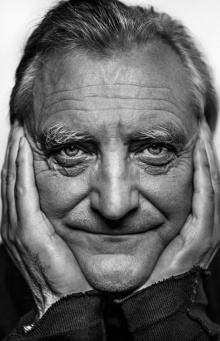
A year ago, architect and designer Bořek Šípek passed away
 |
Šípek was born on June 14, 1949, in Prague, where he also studied furniture design at the Secondary School of Applied Arts. He completed his dream of studying architecture only after his emigration to Germany in 1968 in Hamburg. Later, he also studied philosophy, which influenced his architectural thinking. He first attracted attention shortly after turning thirty with a glass house in Hamburg that he designed for his sister. However, he found a more suitable environment for his ideas in the Netherlands, where he opened an architectural and design studio in 1983.
As a designer, he gained fame in the 1980s through his work for the iconic Italian design company Driade, but he also created for other significant firms such as Wittmann, Swarovski, Leitner, and Quartet in Austria, Swiss Vitra, or Sévres and Saint-Gobain in France.
After November 1989, he returned to Czechoslovakia, and in addition to his work at Prague Castle, he co-founded the glassworks Ajeto in Lindava, Českolipsko, with glassmakers Petr Novotný and Libor Fafala. He taught at the University of Applied Arts in Prague, a university in Vienna, and later became a professor and dean of the Faculty of Art and Architecture at the Technical University of Liberec.
He has a son, Artur, with singer Leona Machálková. In addition to him, Šípek and his wife, Dutch choreographer Hillary Uden, welcomed sons Milan and Dalibor.
The English translation is powered by AI tool. Switch to Czech to view the original text source.
0 comments
add comment






